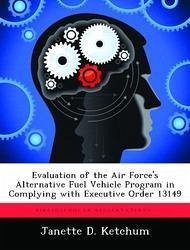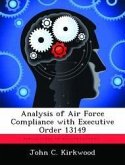The Air Force must comply with Executive Order (E.O.) 13149, which includes cutting its vehicle fleet's petroleum fuel usage 20 percent by 2005. This thesis examines the Air Force's current alternative fuel vehicle (AFV) program, which is centered around the acquisition and use of compressed natural gas (CNG) vehicles, to determine whether it has been effective, and how the AFV program should be tailored to contribute to the Air Force's efforts to comply with E.O. 13149. The results of the study discussed here suggest ways in which the Air Force's AFV program can be modified to increase the program's impact on petroleum consumption. Although analysis shows that full compliance by all federal agencies will decrease the annual amount of oil imported to the United States by less than one percent, the Air Force must meet E.O.13149 requirements. The Air Force has effectively managed its CNG vehicle fleet by assigning a vast majority of CNG vehicles to units with access to CNG fueling infrastructure, but usage of CNG vehicles' in their CNG capacity must be increased if the AFV program is to contribute to the Air Force's effort to cut petroleum usage.
Hinweis: Dieser Artikel kann nur an eine deutsche Lieferadresse ausgeliefert werden.
Hinweis: Dieser Artikel kann nur an eine deutsche Lieferadresse ausgeliefert werden.








